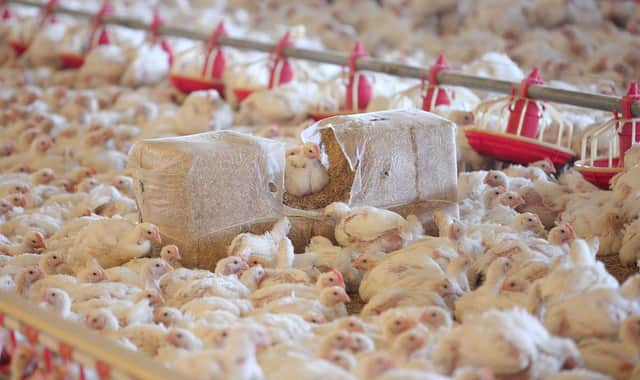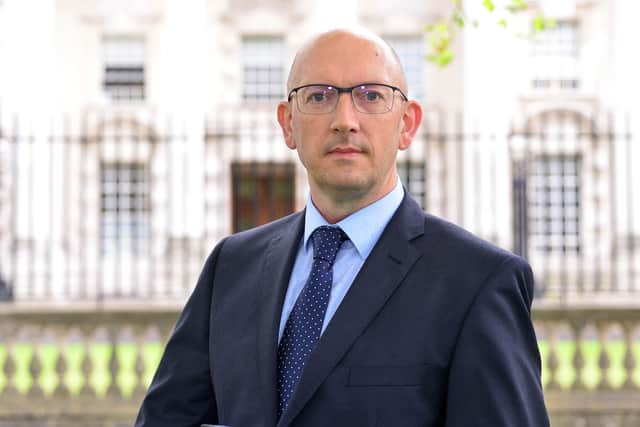RHI poultry farmer ‘could have been paid almost £8m’ if subsidies hadn’t been cut


Senior judges were told Thomas Forgrave might eventually have been paid more than 20 times what he invested without the reductions to the flawed scheme.
It was also forecast that another boiler owner involved in the legal action who spent £111,000 on installations would have received in excess of £2.5m during the lifetime of the green energy initiative.
Advertisement
Hide AdAdvertisement
Hide AdThe predicted figures were disclosed as counsel representing the Department for the Economy argued that the cuts had been lawfully made as part of steps to deal with overcompensation.


Tony McGleenan QC said: “Both the appellants who are making Human Rights Act claims have, on figures they themselves returned, received significantly in excess of the original capital investment.”
Members of the Renewable Heat Association NI Ltd and Mr Forgrave are taking separate cases against the department over legislative changes introduced in 2017 and again in 2019.
The revised RHI regulations saw annual payments to non-domestic operators slashed from £13,000 to £2,000.
Advertisement
Hide AdAdvertisement
Hide AdBoiler owners claim that was an unlawful step taken against operators who signed up to the initiative back in 2012 on the basis that rate of return on their investments was guaranteed for 20 years.
Set up to encourage businesses and other non-domestic users to switch to environmentally friendly wood pellet burning systems, the RHI scheme was plunged into controversy after the potential cost to taxpayers emerged.
Because subsidies were higher than fuel costs it became known as “cash for ash” and was closed to new entrants in 2016.
The debacle led to the fall of Stormont’s power-sharing administration in 2017, and a public inquiry which identified a series of failings but found no evidence of illegal activity.
Advertisement
Hide AdAdvertisement
Hide AdTwo High Court judges have already held that the tariff cuts were lawful.
Appealing those rulings, lawyers for the “2012 cohort” of boiler owners claim insufficient weight was given to the potential catastrophic impact on their livelihoods.
Mr Forgrave’s award-winning business had been left potentially unviable after he borrowed hundreds of thousands of pounds to install 10 biomass boilers at his Co Antrim poultry farm, it was contended.
His barrister argued that the High Court was wrongly swayed on being told he has received more than £1m in payments over a seven-year period.
Advertisement
Hide AdAdvertisement
Hide AdResponding for the department, Mr McGleenan argued: “The payment of £1.1m is not an excessive burden.”
He also set out a forecast of what could have been paid to Mr Forgrave over the scheme’s remaining lifetime for an outlay of £347,000.
“If they stuck with 2012 (tariff rates) only, he would receive just short of £8m – 22.9 times the capital investment,” the barrister claimed.
“If you stayed with the 2017 tariffs, he receives £3.5m – 10.3 times his capital investment.
Advertisement
Hide AdAdvertisement
Hide Ad“Or, if we run the 2019 tariff to its conclusion, he receives £1.5m – 4.3 times the capital investment.
“On any metric, he receives full return and more on the capital expenditure, plus a very healthy rate of return.”
Based on the RHI methodology, the court heard another man who installed four 99kw boilers at a total cost of £111,000 has secured returns of 204%.
If that operator had continued to receive subsidies at the original rate it was estimated that he would have been paid more than £2.5m, Mr McGleenan contended.
During submissions he insisted that a government authority can break a legitimate expectation, provided it does not amount to an abuse of power.